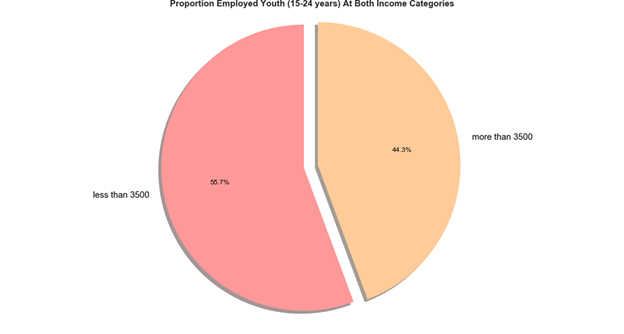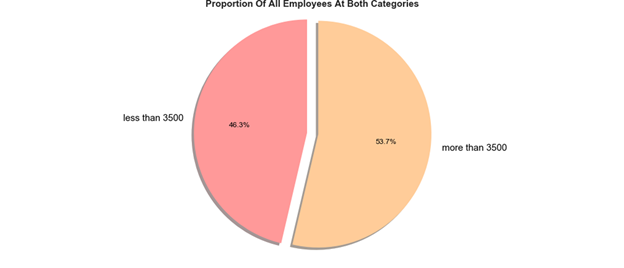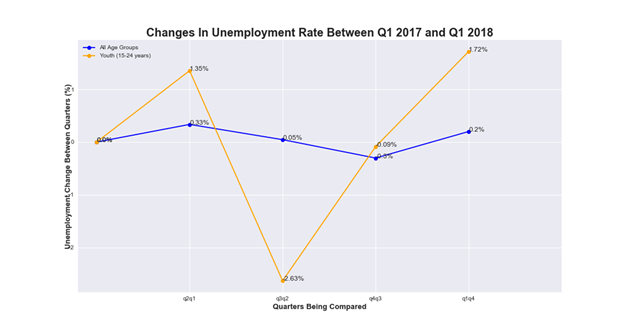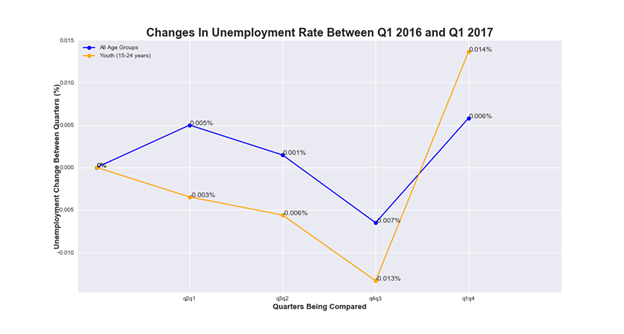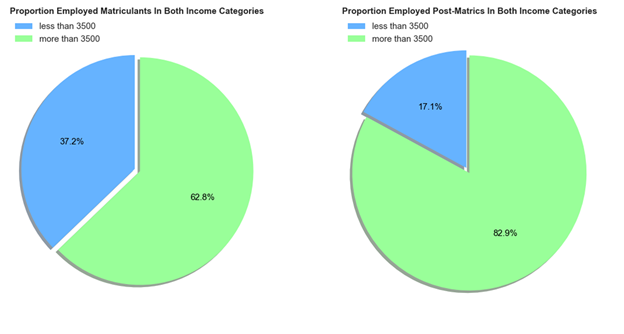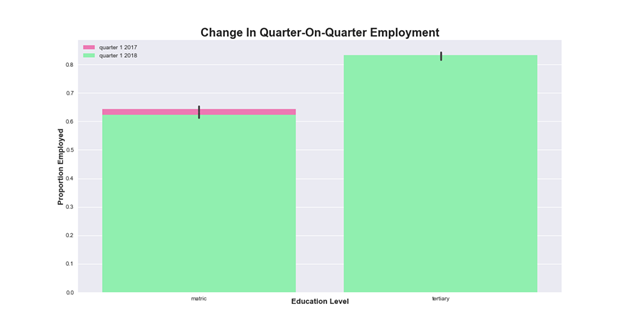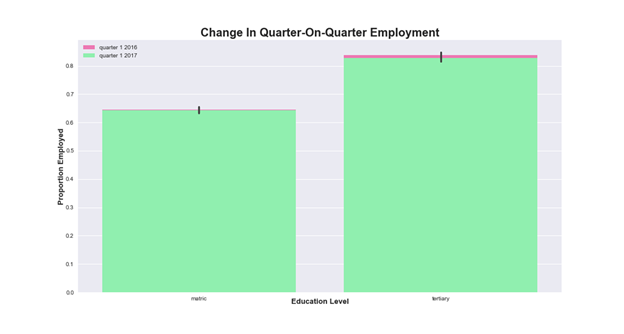On February 7 2017, then deputy president Cyril Ramaphosa signed an agreement with representatives of big business and labour (excluding Cosatu) on an agreed National Minimum Wage.
This is to pave the way for a standardised minimum wage level for virtually all South African employees as a floor below which no prospective worker may be employed.
We know that this makes it unlikely for low- or unskilled persons to find work, as their level of productivity is often below the value of the minimum wage.
In South Africa’s case, this floor for most workers would be R20/hour, according to the Nedlac agreement which translates to R3500/month for employees working 40 hours a week.
StatsSA’s latest Labour Market Dynamics (LMD) data (2016) shows the proportion of employed young people (15-24 years), compared to the entire labour force, who fall in at this level of income:
55.7% of employed youth earn R3500 or less per month.
The same figure is drawn for the entire labour force below:
The proportion of all employees at this level was 46.3%, meaning that the National Minimum Wage would tend to affect young people more than the general population of employed adults.
As a consequence of the Nedlac agreement, are businesses changing their hiring/firing patterns in anticipation of the National Minimum Wage coming into operation?
Looking at the unemployment figures for young people (as opposed to the general labour force) between the first quarter of 2017 (when the agreement was signed) and the first quarter of 2018, it is clear that some detrimental consequences have ensued.
Not only did youth unemployment increase for all but the third quarter of 2017, it was also more volatile, meaning young people were less secure in their jobs.
For comparison, here is the same figure for the period 2016-2017:
During 2016-2017, youth unemployment was not only declining, it was declining faster than general unemployment.
But, this changed in the quarter in which the minimum wage was announced.
And how is the minimum wage affecting those who have only a matric compared to those who have tertiary qualifications?
Here are the proportions of matriculants earning at the minimum wage level (R3500/month or below) compared to that of youngsters with a tertiary qualification earning at the same level:
The figure shows us that 37.2% of employed matriculants work at the National Minimum Wage level, compared to 17.1% of employed individuals with tertiary qualifications.
Matriculants’ exposure to the National Minimum Wage level is more than twice that of people with tertiary qualifications.
The quarter-on-quarter changes in employment (i.e change in employment when comparing q1 2017 and q1 2018) for people with matric as compared to those with tertiary qualifications follows:
Employment for matriculants in q1 2018 dropped by 2.21 percentage points compared to q1 2017, while it increased for those with tertiary qualifications by 0.51 percentage points. For comparison, here is a representation of the same data for q1 2016 and q1 2017:
For this period, matriculant employment dropped by 0.07 percentage points, compared to 1.12 percentage points for those with tertiary qualifications.
Thus, the matriculant unemployment rate increased more slowly than the unemployment rate among those with tertiary qualifications between q1 2016 and q1 2017.
Contrast this with what happened between q1 2017 and q1 2018 after the National Minimum Wage agreement had been announced: the matriculant unemployment rate increased by more than two percentage points, while for those with tertiary qualifications it decreased by 0.5 percentage points.
This shows that unemployment tends to increase faster for those groups of vulnerable people supposedly protected by the National Minimum Wage.
This trend has coincided with the period between now and when the Nedlac agreement was signed in 2017.
This should give proponents of the minimum wage some pause for thought.
If we are observing these effects before the minimum wage’s implementation, what will the situation look like after implementation?
With the National Minimum Wage Bill passed through Parliament, it only remains for President Ramaphosa to sign it into law.
Expect that the trends in increased unemployment as illustrated in the graphs above will be exacerbated once this happens.
Do we really want to have more unemployed young people? More unemployed matriculants?
Time and more data will reveal what impact the National Minimum Wage will have on South Africa’s already-high rate of unemployment, but, one thing is certain, artificially raising the cost of labour is not going to make life better for the almost ten million desperate, unemployed South Africans begging at street corners.
